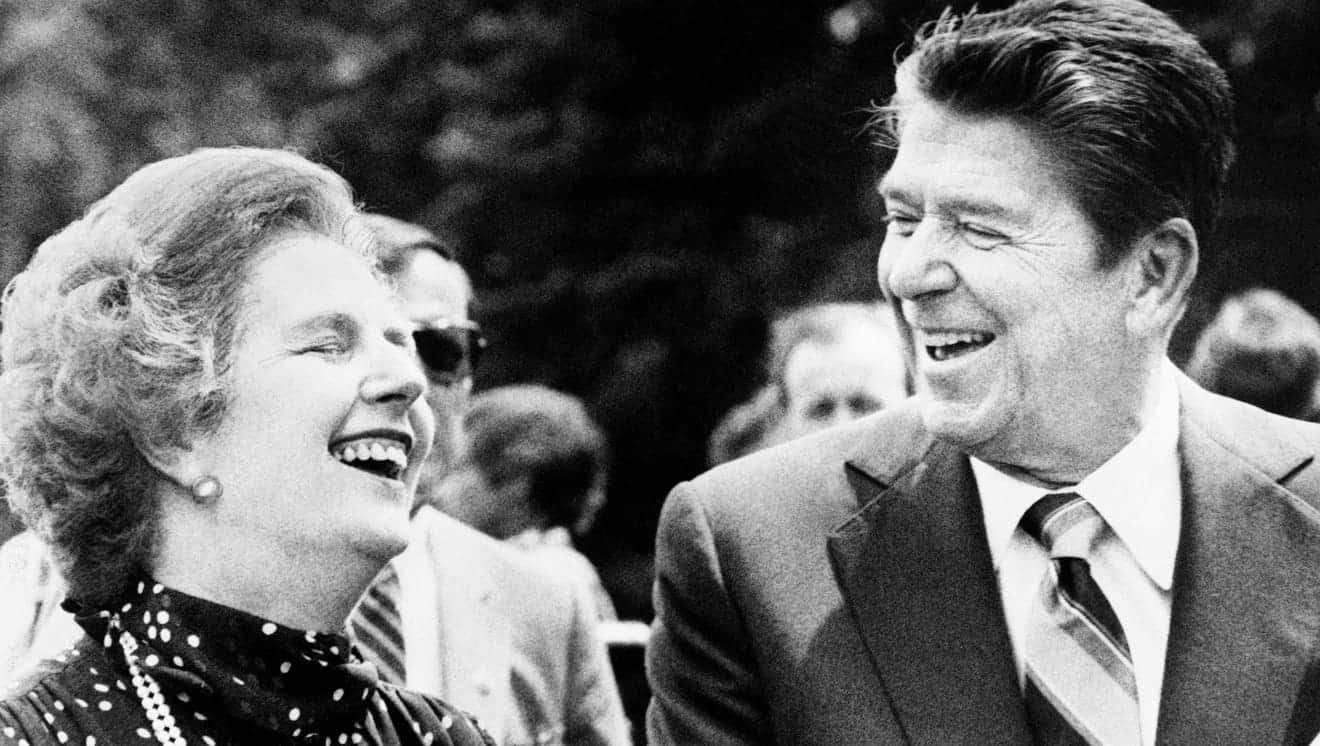Thatcher, Reagan relationship altered history

Margaret Thatcher's first official visit to the United States was in 1967 when, as a young member of Parliament, she toured the country as part of a State Department exchange program. The six-week trip acquainted her with the USA from Miami to Los Angeles, but it wasn't until she met Ronald Reagan that she found her political "soulmate" and formed an alliance that would alter history.
Thatcher first met Reagan one-on-one in April 1975 at the House of Commons in London. Reagan, then the governor of California, wrote a thank-you note to Thatcher, then the Conservative Party's opposition leader in Parliament.
"Please know," Reagan wrote, "you have an enthusiastic supporter out here in the 'colonies.'"
Thatcher recalled that meeting decades later in a 1997 speech at the Heritage Foundation in Washington, D.C.
"As soon as I met Governor Reagan, I knew that we were of like mind, and manifestly so did he," Thatcher said. "We shared a rather unusual philosophy and we shared something else rather unusual as well: We were in politics because we wanted to put our philosophy into practice."
Thatcher's tenure as prime minister coincided with Reagan's time in the White House.
The Ronald Reagan library identifies Thatcher as Reagan's most prolific correspondent among heads of state and notes that they exchanged hundreds of letters, messages and telephone calls.
Both worked to dismantle government bureaucracies and deregulate key industries. At one meeting, Reagan and Thatcher had a sharp discussion about U.S. barriers to the denationalization of British Airways.
"Ronnie and Margaret were political soulmates, committed to freedom and resolved to end communism," former first lady Nancy Reagan recalled in a statement Monday. "As prime minister, Margaret had the clear vision and strong determination to stand up for her beliefs at a time when so many were afraid to 'rock the boat.' As a result, she helped to bring about the collapse of the Soviet Union and the
That feisty determination was on display in a private meeting between Thatcher and Reagan at Camp David, Md., on Dec. 22, 1984, where notes indicate she gave a detailed account of her meeting with Soviet leader Mikhail Gorbachev.
Thatcher called Gorbachev charming, open to debate and much less constrained than the typical Russian.
"The prime minister noted that she often says to herself the more charming the adversary, the more dangerous," the notes said.
Still, she told Reagan, she'd asked Gorbachev pointed questions during his visit to London, including why the Soviet Union denied its people the right to emigrate. She suggested to him that it was a "sign of weakness to feel the need to keep one's people in," the notes said.
As their political careers dimmed and a new generation of politicians blamed Thatcher for Britain's economic woes, it was Thatcher who stood amid criticism to burnish Reagan's legacy even while her own was called into question. Calling the former president "my old friend Ronald Reagan," Thatcher praised him in a 1997 Heritage Foundation speech as "one of the great men of our time, and one of the greatest American presidents of all time."
"If that is not fully appreciated today, and sadly it is not, it isn't really surprising," she said. "After all, so many people have been proved wrong by Ronald Reagan that they simply daren't acknowledge his achievement. Forests have already been pulped to print the revisionist analyses of the '80s."
Photo: Britain's Prime Minister Margaret Thatcher and President Ronald Reagan share a laugh during a break from a session at the Ottawa Summit on July 21, 1981, at Government House in Ottawa, Canada. AP File.
Link: https://www.usatoday.com/story/news/world/2013/04/08/thatcher-reagan-political-soulmates/2063671/











